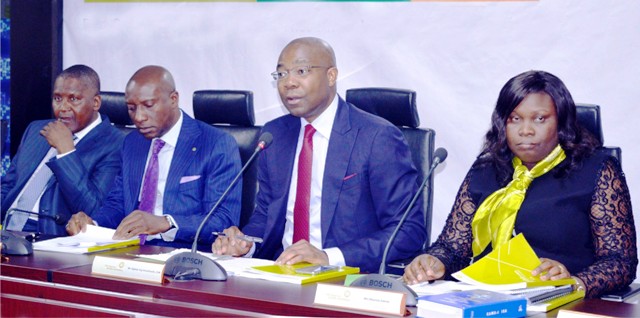Business
Coordinator Wants FG To Change Budget Implementation Modalities

The Federal Government has been urged to change its budget implementation modalities to tackle specific sectors in the year in order to address the country’s social and economic challenges.
Coordinator of Amasiri Development Centre of Afikpo-North of Ebonyi State, Mr Fredrick Nwangbo, made the call recently in Abakaliki in an interview with newsmen.
He said that adoption of such modality would bring the country out of developmental wood occasioned by the vicious cycle of paucity of funds.
According to him, the yearly budget estimate should be earmarked for two or three sectors, to ensure that issues relating to them are permanently tackled.
“The Federal Government for instance, can decide to earmark a year’s budget to tackle power-generation and education challenges and tackle two or three other sectors the following year.
“This would ensure that the problems confronting a particular sector are permanently solved and the sectors brought to acceptable developmental standards.
“Application of such system will make the country attain a globally-acclaimed economy and help in quelling agitation arising from under development from its component units,” he said.
Nwangbo remarked that state governments would adopt the system if properly implemented at the federal level to ensure that the citizens enjoy democratic dividends at the grass roots.
“The present budget implementation system has stifled development in the country as funds are allocated to various sectors at once with no meaningful developmental results,” he said.
The coordinator hailed the south-east governor’s forum for its handling of the recent upheavals between the Nigerian army and the Indigenous Peoples of Biafra (IPOB).
“The Forum led by our Governor, Chief David Umahi, effectively doused the tension and still brought to fore issues of marginalisation suffered by the Ibos.
“Ibos have shown that they practically believe in the oneness of the country with the way they live peacefully and conduct businesses in all parts of the country.
“They are only requesting to be recognised in a true federal structure in the country for them to feel a sense of belonging like other component parts.
“We hold the same view in Ebonyi; we cannot accept any regional structure that would not give us our due place in the scheme of things,” he said.
Business
Kenyan Runners Dominate Berlin Marathons
Kenya made it a clean sweep at the Berlin Marathon with Sabastian Sawe winning the men’s race and Rosemary Wanjiru triumphing in the women’s.
Sawe finished in two hours, two minutes and 16 seconds to make it three wins in his first three marathons.
The 30-year-old, who was victorious at this year’s London Marathon, set a sizzling pace as he left the field behind and ran much of the race surrounded only by his pacesetters.
Japan’s Akasaki Akira came second after a powerful latter half of the race, finishing almost four minutes behind Sawe, while Ethiopia’s Chimdessa Debele followed in third.
“I did my best and I am happy for this performance,” said Sawe.
“I am so happy for this year. I felt well but you cannot change the weather. Next year will be better.”
Sawe had Kelvin Kiptum’s 2023 world record of 2:00:35 in his sights when he reached halfway in 1:00:12, but faded towards the end.
In the women’s race, Wanjiru sped away from the lead pack after 25 kilometers before finishing in 2:21:05.
Ethiopia’s Dera Dida followed three seconds behind Wanjiru, with Azmera Gebru, also of Ethiopia, coming third in 2:21:29.
Wanjiru’s time was 12 minutes slower than compatriot Ruth Chepng’etich’s world record of 2:09:56, which she set in Chicago in 2024.
Business
NIS Ends Decentralised Passport Production After 62 Years
Business
FG To Roll Out Digital Public Infrastructure, Data Exchange, Next Year
-
Sports5 days ago
Sosa Pledges To Support Dolphins Swimming League
-
Oil & Energy5 days ago
FG Inaugurates National Energy Master Plan Implementation Committee
-
News5 days ago
Tinubu, Atiku, Others To Attend Ladoja’s Coronation As Olubadan, Friday
-
Sports5 days ago
Iwobi Stars As Fulham Overcome Brentford
-
Maritime5 days ago
Ogbe Urges Nigerian Coys To Seek Deep Water Opportunities
-
Sports5 days ago
Ex-3SC player Laments over ‘unfulfilled promises’ by Oyo State
-
Business5 days ago
Lawmakers Move To Grant NBS Financial Autonomy, Plans National Tax Trust Fund
-
News5 days ago
UNGA 2025: FG Targets Empowerment Of 10 Million Women

